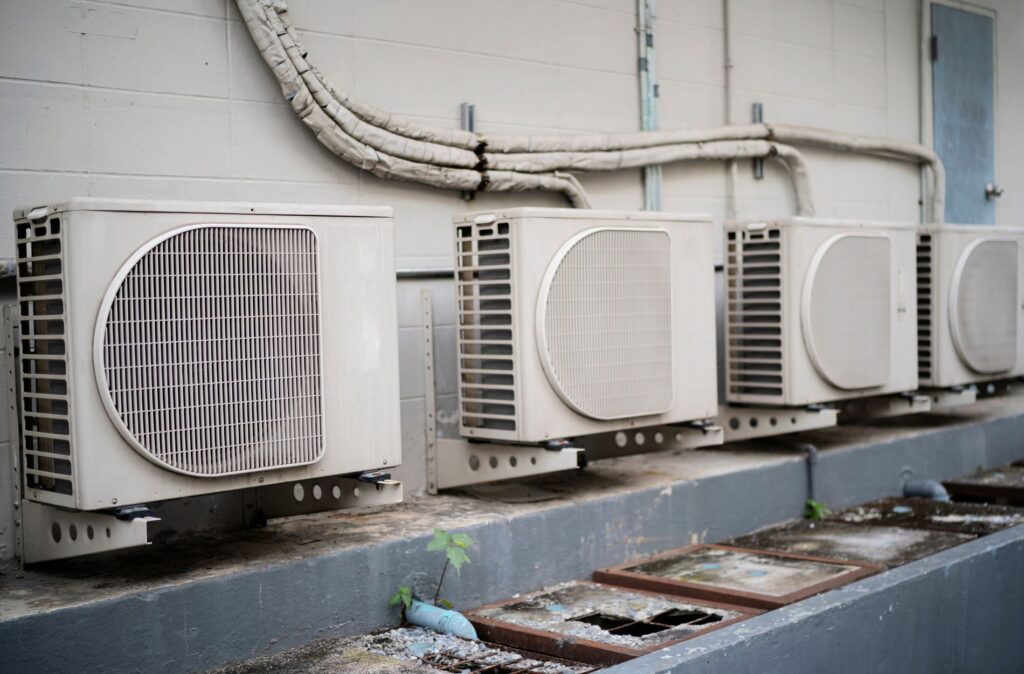Indoor air quality is an essential aspect of maintaining a healthy and comfortable living environment in your home. Many factors can impact the quality of air indoors, such as allergens, pollutants, and humidity levels. As homeowners become more aware of these issues, the demand for effective solutions to enhance indoor air quality has risen. One such solution that combines both heating and cooling efficiency with improved air quality is a ductless HVAC system.
Ductless heating and cooling systems, also known as mini-split systems, are an innovative and versatile approach to maintaining a comfortable home environment while improving air quality. With their unique design, ductless systems offer several advantages over traditional heating and cooling systems in terms of energy efficiency, installation flexibility, and, most importantly, indoor air quality improvement.
Stay tuned as B.L.R. Heating & Air delves into the benefits of ductless HVAC systems and their impact on maintaining healthy indoor air quality. We will discuss how these systems filter and clean the air, address humidity-related issues, and minimize the risk of air contaminants like mold and mildew. Additionally, we will share practical tips on maintaining and optimizing your ductless HVAC system for the best results in enhancing your home’s indoor air quality.
1. Ductless HVAC Systems and Air Filtration: Cleaner, Fresher Air
One significant advantage of ductless HVAC systems when it comes to indoor air quality is their ability to filter and clean the air. Ductless systems utilize advanced filtration technology that helps remove pollutants, allergens, and contaminants from the air. This ensures cleaner, fresher air, making your home more comfortable and healthier for those living inside. By reducing allergens and irritants, ductless HVAC systems can be especially beneficial for individuals with respiratory conditions or allergies.
To reap the full benefits of your ductless system’s air filtration capabilities, cleaning and replacing the filters regularly is essential. Our HVAC professionals can provide guidance on the recommended maintenance schedule for your specific system and model.
2. Humidity Control with Ductless Systems: Enhancing Comfort and Health
Humidity levels play a significant role in determining the comfort and health of your living environment. High humidity can cause dampness, condensation, and mold growth, while low humidity can lead to dry skin, irritation, and respiratory issues. Ductless HVAC systems can effectively regulate and maintain optimal humidity levels within your home, contributing to improved indoor air quality.
Ductless systems manage humidity by conditioning the air during the heating and cooling process. In cooling mode, the system removes excess moisture from the air, while in heating mode, it maintains balanced humidity levels to prevent excessive dryness. By regulating humidity, ductless HVAC systems create a more comfortable and healthy home environment, reducing the risks associated with both high and low humidity levels.
3. Preventing Mold and Mildew Growth: A Safer Indoor Environment
A common issue impacting indoor air quality is the growth of mold and mildew, which can be detrimental to your health, particularly for those with allergies or respiratory conditions. One of the driving factors for mold and mildew growth within your home is humidity, as these organisms thrive in damp environments.
Ductless HVAC systems can help prevent mold and mildew growth by effectively controlling humidity levels and maintaining a dry, clean living environment. Furthermore, unlike traditional forced-air systems with ductwork, ductless systems minimize the potential for mold and mildew growth within the system itself. This is because ductless systems have no ducts to accumulate moisture, dirt, and debris – common factors that contribute to mold and mildew growth in traditional HVAC systems.
Regular maintenance and cleaning of your ductless system, particularly the filters, can further reduce the risk of mold and mildew growth, ensuring a healthier indoor environment for you and your family.
4. Maintaining Your Ductless System for Optimal Air Quality: Best Practices
Proper maintenance is essential to keep your ductless HVAC system operating at peak performance and continue reaping the benefits of improved indoor air quality. Here are some best practices to ensure your ductless system remains in excellent condition:
– Regularly clean and replace filters to maintain efficient air filtration and prevent dust buildup within the system.
– Schedule annual maintenance with our HVAC professionals to inspect, clean, and service your ductless system, addressing any potential issues before they escalate.
– Keep the outdoor unit clean and free of debris, ensuring that airflow is not obstructed.
– Periodically clean the indoor air handlers and surrounding areas, removing dust and debris that may accumulate over time.
Conclusion
Ductless HVAC systems are an excellent choice for maintaining a healthy and comfortable home environment, offering advantages in air filtration, humidity control, and mold and mildew prevention. By understanding the benefits of these systems and following best practices for their maintenance, you can enhance your home’s indoor air quality and enjoy a cleaner, fresher living space.
At B.L.R. Heating & Air, our professional team is ready to assist you with our HVAC services in Woods Cross that are tailored to your unique needs. If you’re interested in exploring the benefits of ductless systems and improving your home’s indoor air quality, don’t hesitate to contact our HVAC professionals today. Together, we can create a healthier and more comfortable home environment for you and your family.





